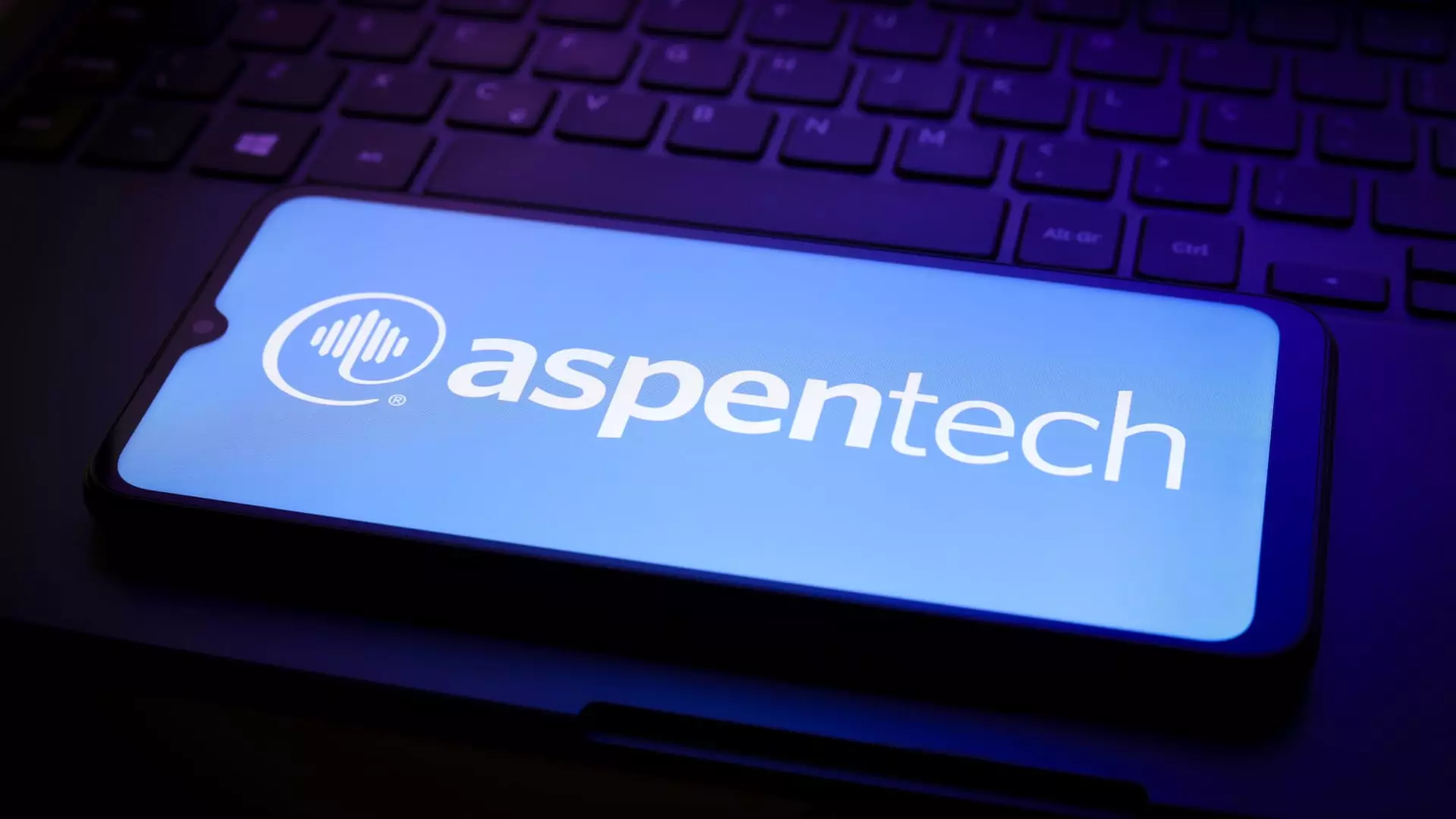Aspen Technology is a prominent player in the industrial software sector, providing comprehensive solutions for asset-intensive industries worldwide. The company’s offerings encompass performance engineering, supply chain management, and predictive maintenance, among others. With a current market capitalization of $16.8 billion and shares trading at approximately $265.25, Aspen’s financial well-being is a topic of intense scrutiny and debate, especially in the wake of an unsolicited tender offer from Emerson Electric.
On February 7, 2025, Emerson Electric, which already holds about 57.4% of Aspen’s outstanding shares, made a tender offer to acquire all remaining shares at $265 each. This proposition has sparked controversy, primarily due to its perceived undervaluation of Aspen Technology, a sentiment echoed by activist investor Elliott Management, which has taken a significant position of $1.5 billion in Aspen.
Elliott’s investment philosophy often revolves around identifying and rectifying governance deficiencies in companies. The firm’s criticism of Emerson’s offer suggests that it believes Aspen’s actual worth far exceeds the proposed price. In their analysis, they propose that substantial operational synergies, potentially valuing the company at over $350 per share, are being overlooked, thereby raising questions about the fairness and motivations behind the tender offer.
The governance aspect of Aspen Technology’s decision-making process raises eyebrows. The independent special committee formed to evaluate Emerson’s tender offer included two directors from Emerson’s own ranks. This setup has led to concerns regarding the integrity of the review process, with many arguing that it creates a conflict of interest. The power dynamics at play reveal how insider control can affect board decisions, especially when significant financial interests are involved.
Under Delaware law, a tender offer requires approval from a majority of disinterested shareholders. This stipulation presents a critical hurdle for Emerson, as Elliott’s 9.0% stake could be decisive if other shareholders rally against the proposed deal. Coupled with the relatively small ownership of the next largest shareholder, Kayne Anderson, whose stake is 6.5%, the situation portrays a complex chess game of shareholder alignment.
The timing of Emerson’s tender offer appears strategically aligned with recent operational enhancements within Aspen Technology. The recent suspension of Aspen’s operations in Russia and a broader improvement in market conditions have created an environment ripe for reinvestment and growth. However, the $265 price point has established a troubling perception of a ceiling for the company’s stock value, which could stifle further stock appreciation if the offer remains unchanged.
Market analysts point out that the tender offer is particularly low when considering the operational efficiencies that Emerson might gain through a full acquisition. Historical precedent suggests that premium offerings in similar transactions typically significantly exceed the current share price, further yielding suspicions that the $265 offer does not resonate with market reality.
As the narrative unfolds, Aspen Technology must navigate the waters of stakeholder expectations and market realities. Elliott Management’s involvement not only adds pressure on the board to reconsider its stance on the offer but also presents a formidable challenge to Emerson’s acquisition hopes. Given Elliott’s track record of successful activism, it can be anticipated that the firm will strategically use its influence to block the transaction unless a substantially improved offer is made.
If Emerson does not reconsider its bid, the chances of securing enough disinterested shareholder votes to push the tender offer through become tenuous. Conversely, if the offer is extended, and a more justifiable valuation is presented, it could rally sufficient support, aligning the interests of both existing shareholders and prospective investors.
As this corporate drama unfolds, active participants in the market will keep a close eye on the maneuverings of Aspen Technology, Emerson Electric, and Elliott Management. The eventual outcome will likely set a precedent not just within these companies but may also impact future negotiations in the rapidly evolving technology and industrial sectors. For now, the tension encapsulates a pivotal moment in the ongoing evolution of corporate governance, shareholder activism, and market dynamics.

